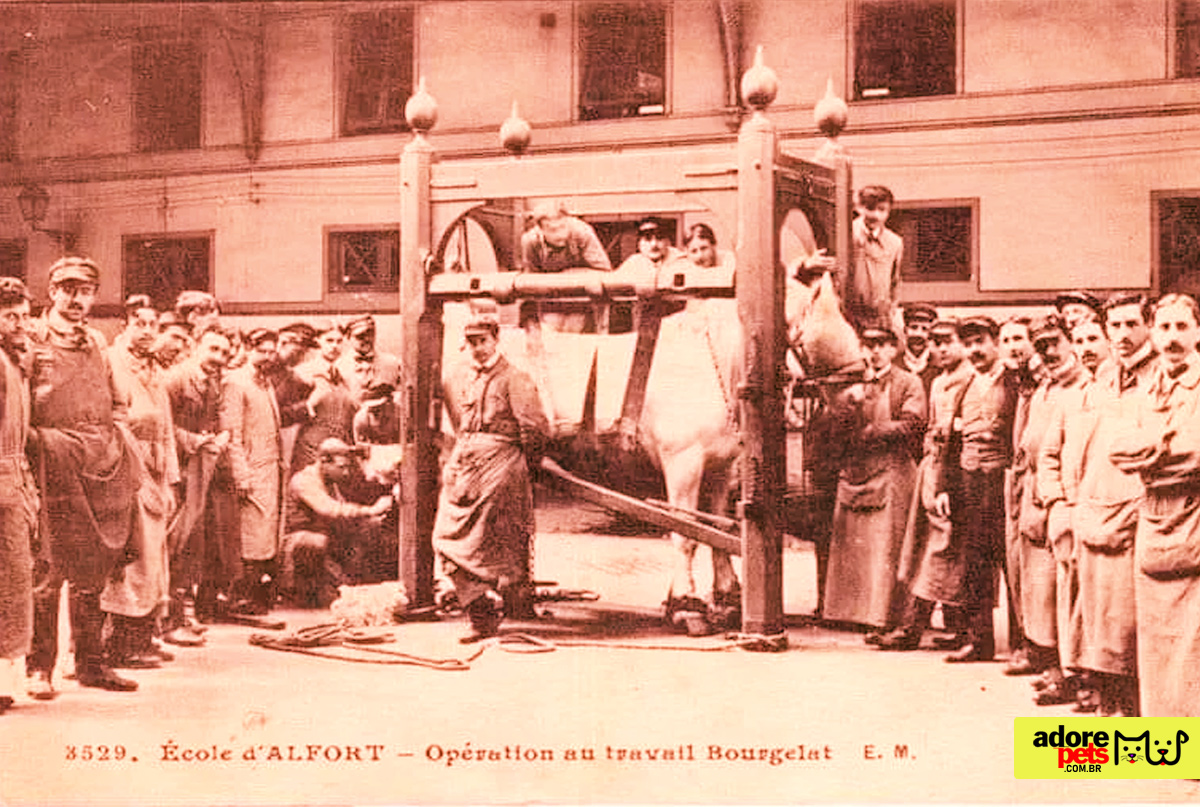
The fascinating story of the origin and evolution of veterinary medicine
Veterinary medicine is an essential profession that plays a vital role in the health and well-being of animals. But how did this important profession come into being? In this article, we will explore the origins of the veterinarian and the evolution of veterinary medicine over the centuries.
Origin of Veterinary Medicine in Antiquity
The history of the veterinarian dates back to ancient times when humans began domesticating animals for various purposes such as agriculture, transportation, and companionship. In ancient Egypt, there is evidence that specialized animal doctors existed thousands of years ago.
The Egyptians were known for their reverence for animals, especially cats and cattle. They developed rudimentary techniques for surgery and treatment of sick animals. These treatments were often based on religious and mystical practices but represented an important step in animal care.
The greco-roman era and the emergence of veterinary medicine
In ancient Greece, philosophers like Aristotle and Hippocrates were already interested in the study of animals and their diseases. However, it was only during the Roman era that veterinary medicine began to develop as a distinct discipline.
In Rome, veterinarians, known as “veterinarii,” were responsible for the care of animals such as horses and elephants, which were crucial to the success of military campaigns. They treated injuries, illnesses, and ensured that animals were in proper condition for battle.
The middle ages and the guild of veterinarians
During the Middle Ages in Europe, knowledge of veterinary medicine was transmitted orally from master to apprentice. Guilds of veterinarians, similar to craftsmen guilds, emerged to regulate the practice of veterinary medicine.
The word “veterinarian” originated in ancient Rome, where old army pack horses were gathered in a place called “veterinus,” where they were cared for, fed, and their battle injuries were tended to by people known as Veterinarii, derived from the word Vetus/veterius, meaning “old.” This term predates the establishment of the first veterinary school in Lyon, France, by 259 years.
It was also during this time that the first veterinary schools were established. The oldest of these, the National Veterinary School of Lyon in France, was founded on August 4, 1761, and in 1765, the National Veterinary School of Alfort, France, was established. These educational institutions played a crucial role in spreading veterinary knowledge and standardizing practices.

The 19th century and the revolution in veterinary medicine
The 19th century was a period of significant advances in veterinary medicine. The discovery of pathogenic microorganisms, such as bacteria, revolutionized the understanding of animal diseases. Louis Pasteur, famous for his contributions to microbiology, also had a significant impact on veterinary medicine by developing vaccines for animal diseases.
During this period, veterinarians began to play a fundamental role in protecting public health. They helped control outbreaks of animal diseases that could spread to humans, such as rabies.
The 20th century and modern veterinary medicine
In the 20th century, veterinary medicine continued to evolve, encompassing a variety of specialties, including surgery, dentistry, oncology, and veterinary cardiology. Technological advancements, such as radiology and ultrasound, became essential tools for animal diagnosis and treatment.
Furthermore, awareness of animal welfare grew, leading veterinarians to play a crucial role in advocating for animal rights. They also played a vital role in preserving endangered species through captive breeding and conservation programs.
The veterinarian in contemporary society
Today, veterinarians play a crucial role in contemporary society. They care for pets, production animals, wildlife, and zoo animals, ensuring that these living beings receive the necessary healthcare.
Additionally, veterinarians have a significant impact on food safety, ensuring that animal-derived products are safe for human consumption. They also engage in research, the development of veterinary medicines, and education, training future professionals in the field.
The history of the veterinarian is a fascinating journey spanning millennia of evolution. From ancient times to the modern era, veterinarians have played a crucial role in safeguarding animal and human health, preserving biodiversity, and advancing veterinary medicine.
As veterinary medicine continues to evolve and adapt to the challenges of the contemporary world, the importance of veterinarians in society has never been more evident. They are true advocates for animals, working tirelessly to ensure that our furry and feathered friends receive the best possible care. The history of the veterinarian is a story of dedication, science, and compassion, and it is a story that continues to unfold each day.



